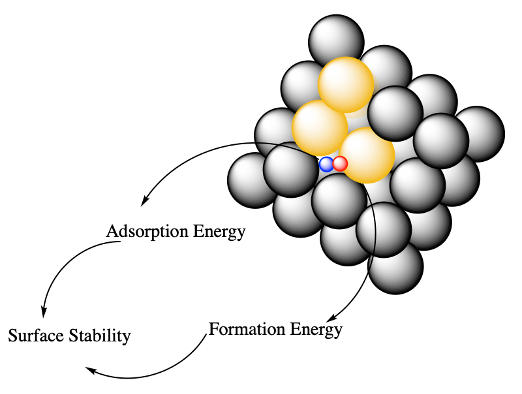(684c) Machine Learning Screening of Alloy Surfaces for Catalytic Stability in Reaction Conditions
AIChE Annual Meeting
2022
2022 Annual Meeting
Catalysis and Reaction Engineering Division
New Developments in Computational Catalysis: Efficiency and Automation
Friday, November 18, 2022 - 8:36am to 8:54am
We trained machine learning models for surface formation energies by screening multiple matrix-based feature sets and fitting to multiple datasets. We combined this with our previous, general model for predicting adsorption energies. This combination of models for predicting alloy surface energies with models for predicting adsorption energies of many species opens new avenues in efficient catalyst screening. We can predict the energy of an alloy surface in reaction conditions and compare it to surfaces with different arrangements of the same elements to identify which alloy surfaces are stable in reaction conditions. This significantly increases screening efficiency. We apply this approach to multiple reactions, including CO oxidation and methane steam reforming.
